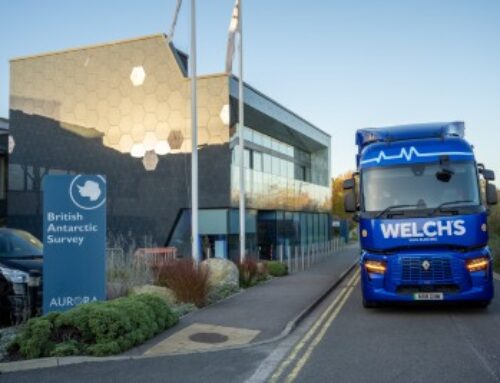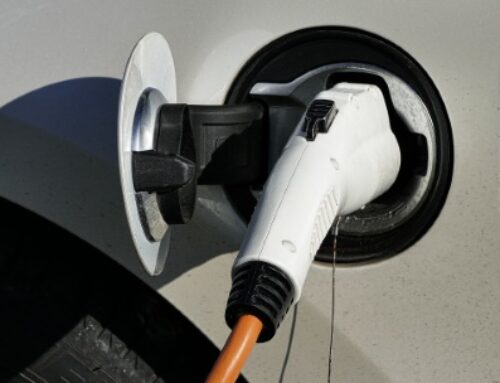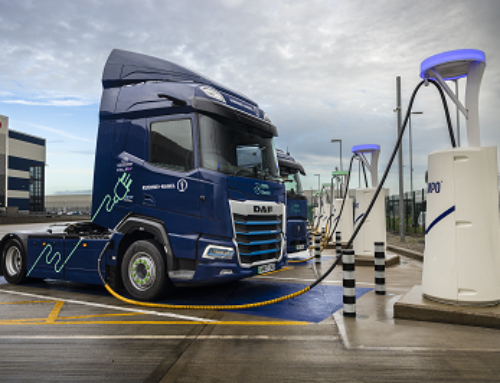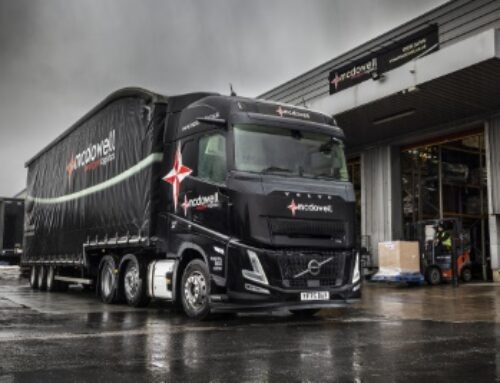Biogas powers food waste collection fleet
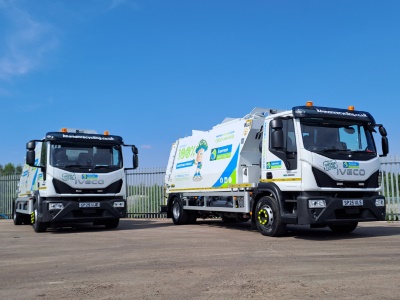 Aberdeen-based Keenan Recycling is living up to its name by adding 10 new Iveco Eurocargo compressed natural gas (CNG) fuelled-trucks to its fleet. In a classic example of the ‘circular economy,’ the trucks’ fuel is produced by anaerobic digestion of food waste collected by the company. Keenan claims to have diverted over 50,000 tonnes of food waste from landfill last year, but with nine million tonnes of food waste produced in the UK each year, there is no shortage of raw material.
Aberdeen-based Keenan Recycling is living up to its name by adding 10 new Iveco Eurocargo compressed natural gas (CNG) fuelled-trucks to its fleet. In a classic example of the ‘circular economy,’ the trucks’ fuel is produced by anaerobic digestion of food waste collected by the company. Keenan claims to have diverted over 50,000 tonnes of food waste from landfill last year, but with nine million tonnes of food waste produced in the UK each year, there is no shortage of raw material.
Without anaerobic digestion, the material would just rot slowly, releasing methane and CO2 (both greenhouse gases) into the atmosphere. The digestion process enables the production of high-quality methane, which fuels the trucks as an alternative to fossil diesel.
Founded in 2001, Keenan Recycling has grown into one of the UK’s leading food waste collection and recycling providers, operating from 27 depots across England, Wales, and Scotland. This national footprint enables the company to deliver reliable, carbon-conscious waste solutions to thousands of businesses each week.
Each truck is expected to cover around 25,000 miles per year, with every mile fuelled by biomethane. The Eurocargo’s 6.7 litre Tector 7 engine produces 220 bhp, and run on biomethane it produces just 5 per cent of the CO2 that a diesel equivalent would.
The gas is contained in six standard 115-litre tanks, but Keenan’s trucks have three additional 140-litre tanks to maximise range.
Each vehicle has a Macpac 110 refuse body capable of holding up to 11m³ of waste – equating to 8 tonnes in weight – and is built from higherwearing, corrosion-resistant steel for durability. It features interlocking doors, a tailgate, and an integrated side-loading bin lift strong enough to handle 1,280-litre kerb-side containers with ease.
The trucks were supplied by A M Phillip Trucktech, and are the first Ivecos to join Keenan Recycling’s fleet.
Grant Keenan, MD at Keenan Recycling, said: “Our day-to-day operation demands a lot of our vehicles, which is why we needed something that could keep up with those requirements. Running these vehicles on CNG allows us to operate a circular economy – making use of what would otherwise be a waste product – whilst delivering a spectacular reduction in emissions.”









